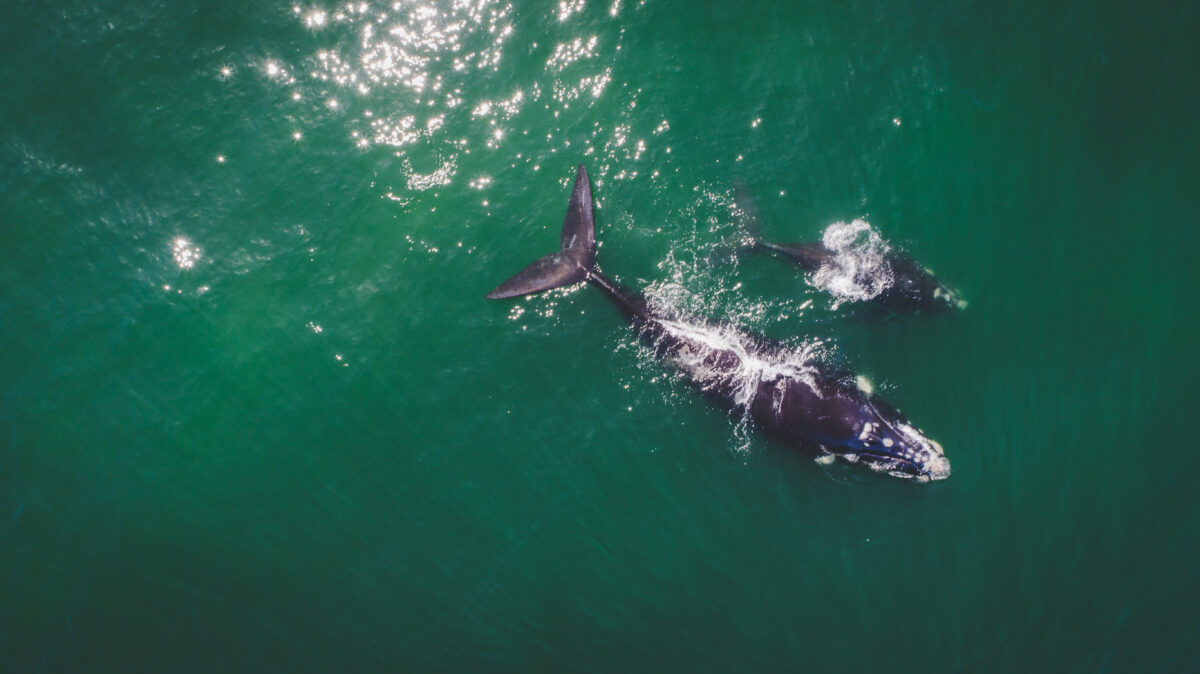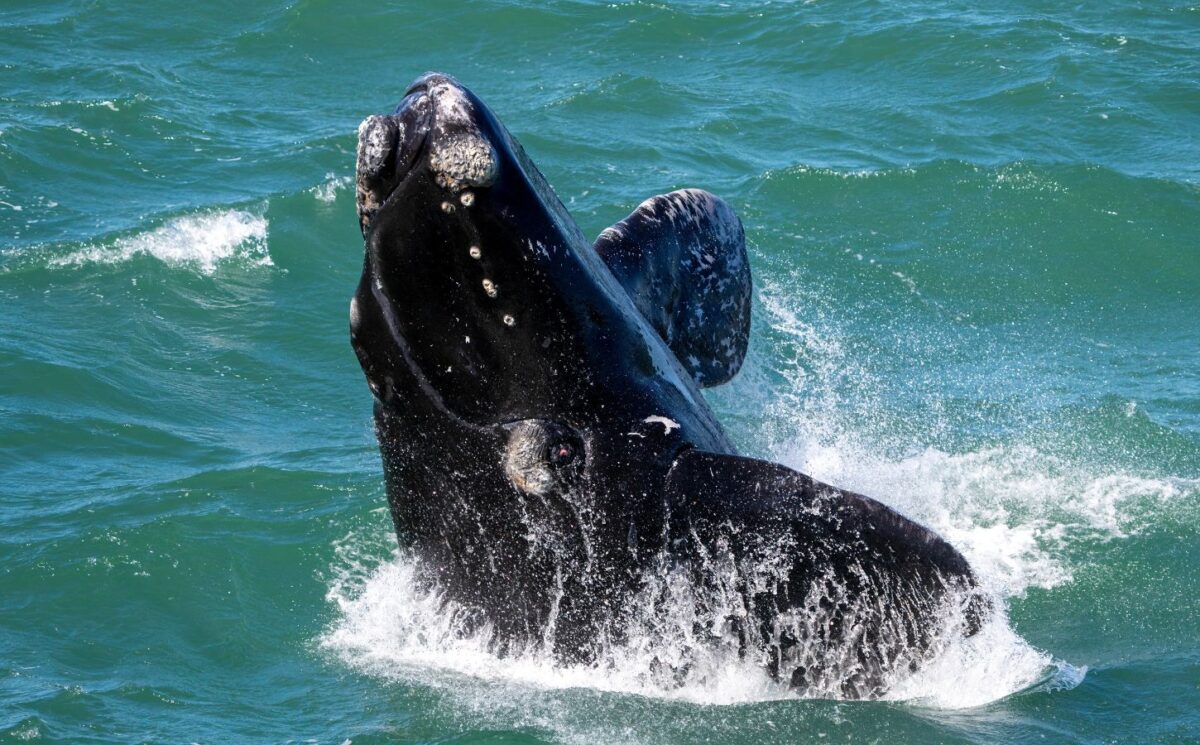An endangered North Atlantic right whale has been documented just off Ireland’s northwest coast for the first time in over 100 years.
Read more: Iceland Permits Hunting Of 128 Fin Whales
The Irish Whale and Dolphin Group (IWDG) has now officially identified the whale as a critically endangered North Atlantic right, after a holidaymaker spotted them diving in County Donegal’s McSwynes Bay and reported it on July 15, 2024.
There was initially some debate over whether the whale was, in fact, a North Atlantic right, but video footage taken by another individual revealed the distinctive raised pattern of keratinized skin around the head unique to the species. The IWDG said that the last positive identification of this species off Ireland’s coast took place around 114 years ago.
This notable recent sighting of a North Atlantic right whale near Ireland has been welcomed by many as a positive sign. However, many different marine and terrestrial species are adjusting their behavior and migratory patterns to compensate for a changing environment.
Read more: ‘Sixth Extinction’ Reaching New Heights, Study Warns, But There’s Still Time
Sighting represents a chance to help whales ‘on the very brink’

The National Oceanic and Atmospheric Administration (NOAA) reported 161 whale sightings just off the coast of New England in the US back in May, including an unusually high number of endangered species and three sightings of North Atlantic rights.
As of 2023, the western North Atlantic is home to just 356 of the animals, while the eastern North Atlantic population is functionally extinct. Increasing ship strikes and entanglement in fishing gear – the two main threats to whales – are now killing off the small number of survivors at too fast a rate for the species to bounce back from the brink of extinction.
“As always we ask wildlife and whale enthusiasts who’d like to visit the area with a view to seeing this animal to look for it and watch it from the shore using optics,” wrote the IWDG.
“There is an enormous onus on us all to ensure this whale remains as long as it needs in Donegal Bay, where it’s most likely feeding on tiny copepods, without having to run the gauntlet of small craft and sightseers,” continued the IWDG. “This is our chance to help a population of whales on the very brink. Please give it space.”
Read more: Whale Captivity In Canada Comes To An End After ‘World’s Loneliest’ Orca Dies






